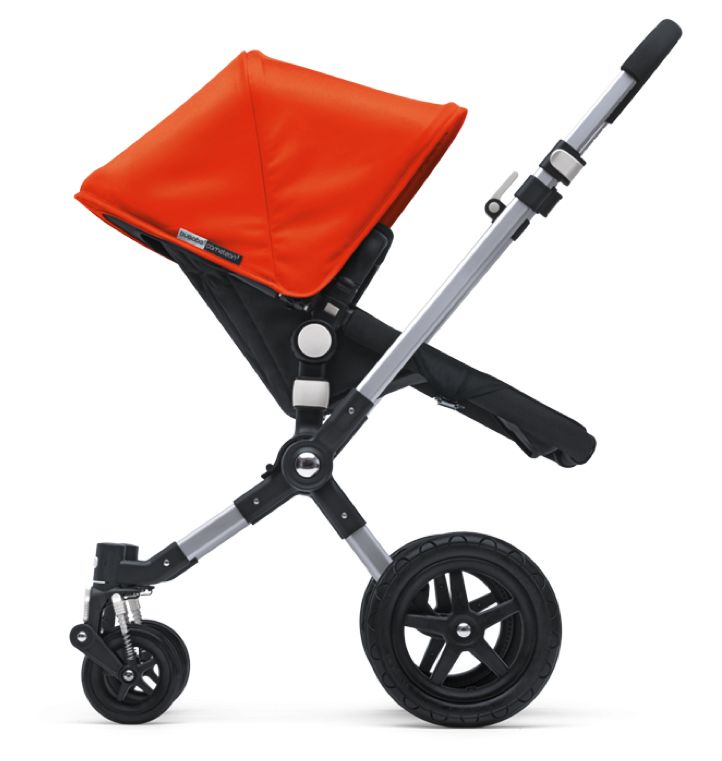Bugaboo
Bugaboo International is a Dutch company that develops and produces mobility products. Founded more than 15 years ago, Bugaboo produced the world's first modular baby stroller. Today, Bugaboo has over 1,400 employees worldwide and its products are sold in more than 50 countries.
Before Bugaboo joined the ResCoM project, its products were already designed for circularity in various ways. They are designed to be durable with the potential for multiple use cycles through second hand use, and are easy to repair, supported by customer services and spare part availability. Yet there remain potential opportunities, particularly in the area of alternative business models such as leasing, that have not yet been realised.
During the ResCoM project, Bugaboo explored and trialled a small-scale pilot for its ‘Flex plan’, which offers a leasing package for new strollers. In addition, Bugaboo also considered the business case for its ‘certified refurbished scheme’ - where strollers are ‘refurbished as new’, certified and sold as a “Bugaboo approved” refurbished stroller.
Outcomes of the ResCoM pilot
During the pilot period, Bugaboo’s Flex Plan, offered customers the opportunity to change their stroller model and accessories according to their changing lifestyle and needs. Customers could subscribe to the Bugaboo Flex Plan to lease a stroller by paying a deposit and a monthly fixed fee. There were a number of barriers and questions that needed to be addressed before implementing the new business model. These included setting up effective reverse logistics, tracking and tracing product returns, ensuring regulatory compliance associated with refurbished products, optimising design for leasing and refurbishment, and understanding the financial feasibility of the new business model compared to the existing one.

The result was a market pilot that tested the Flex Plan with around 50 customers. This gave insights about the potential to expand into new segments of the market not currently targeted by Bugaboo. The main reason for participants to join the Flex Plan appeared to be having access to a high-end stroller without the high up-front cost. Other reasons included being able to switch between products, 'being more sustainable' and the convenience of the service.
Bugaboo used a combination of the various ResCoM tools to improve the circularity of its products. During the early design stage, the Circularity Calculator and Multimethod Simulation tool allowed Bugaboo designers to compare alternative circular scenarios for its products. The tool provided first insights into valuable quantitative data such as potential material volume saving and the breakeven points of various scenarios. Bugaboo found the Circularity Calculator suitable for use by designers, engineers and product marketeers. At a glance it is clear how changing certain drivers impacts both cash-flow and material flows.
The MI:Web BoM Analyzer provided insights into the environmental performance of different material selections, and the potential profitability of the designs was assessed using the Analytical Tool. The most profitable scenario would be that people would use the stroller for two years and then keep it, so Bugaboo could keep their deposit. This finding contradicted the aim to offer a new business model which would serve the philosophy of ‘products designed to last’. This can be explained by the fact that Bugaboo was not optimised for acting as a service provider, reverse logistics provider, and refurbisher of strollers.
The Part Planning and Reman Design Checklist helped Bugaboo identify which parts could be easily carried over across different designs. For Bugaboo, it was particularly important to get the balance right between attractive designs and designing for durability - for example, a modular component could allow for easier remanufacturing, but might be less strong and sturdy which is an important requirement of strollers offered under Flex Plan.
View the platform and tools>>
The pilot highlighted a number of challenges that need to be addressed in capturing the full value of the leasing model. These included non-technical aspects, including administration tasks such as credit-checks, or dealing with any difficulties collecting the monthly fee. Offering customers the opportunity to change their strollers throughout the lease period requires finding ways to overcome the increased refurbishment and transportation costs.
Additionally, it became apparent that people were likely to treat the products with much less care than if they were their own. In the current ownership scenario, products are expected to be used by two to three families. However, in the leasing pilots, the strollers were sometimes damaged after only a few months, despite customers paying a deposit of EUR 200.
Going forwards
Bugaboo still sees potential for this business model, and has learned through ResCoM that there is room to further optimise the offer, to bring down the cost, and to reduce the greenhouse gas impact. Bugaboo plans to use the outcomes of the Flex Plan pilot to continue to seek ways to further develop ‘products to last’.
